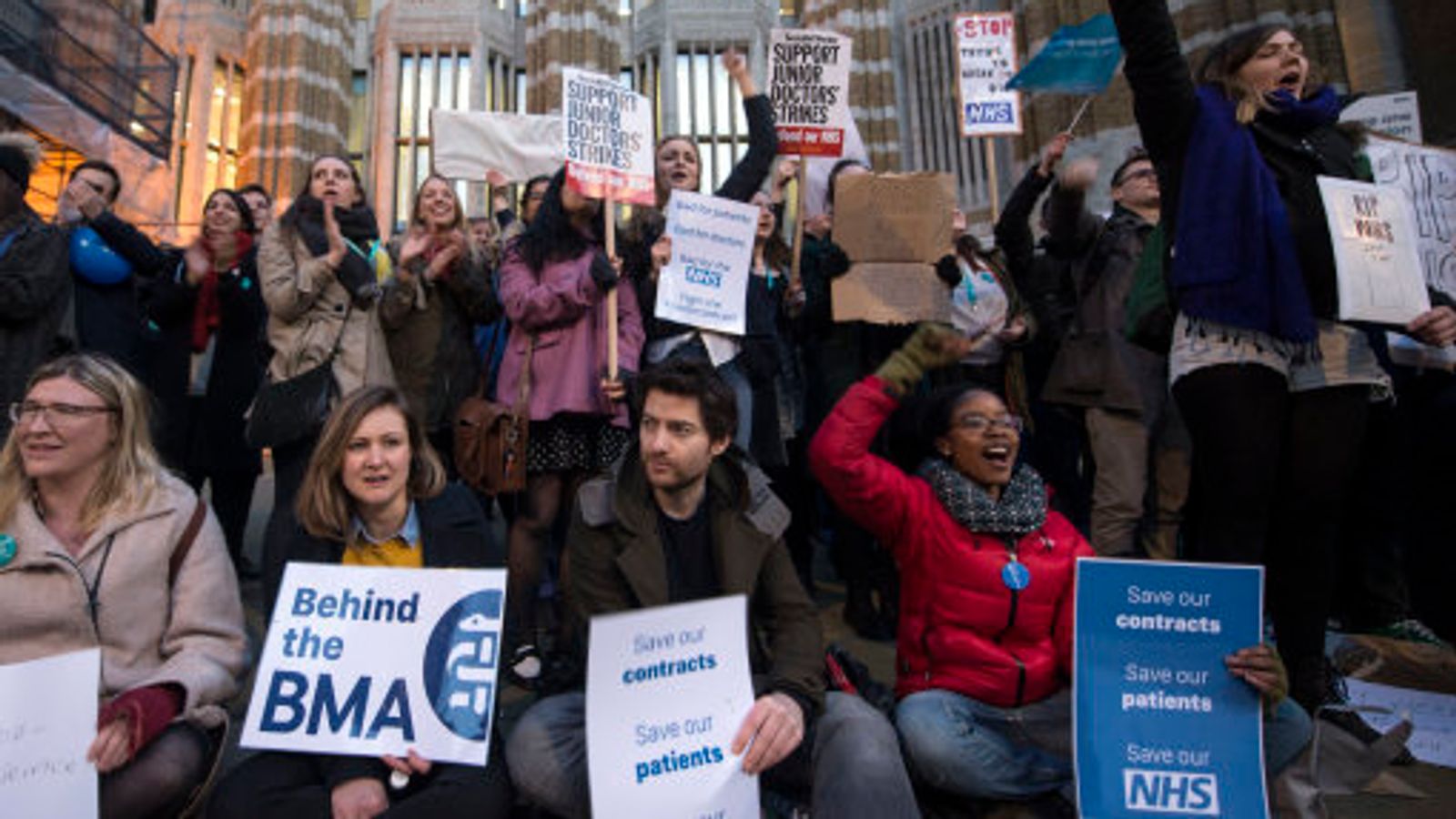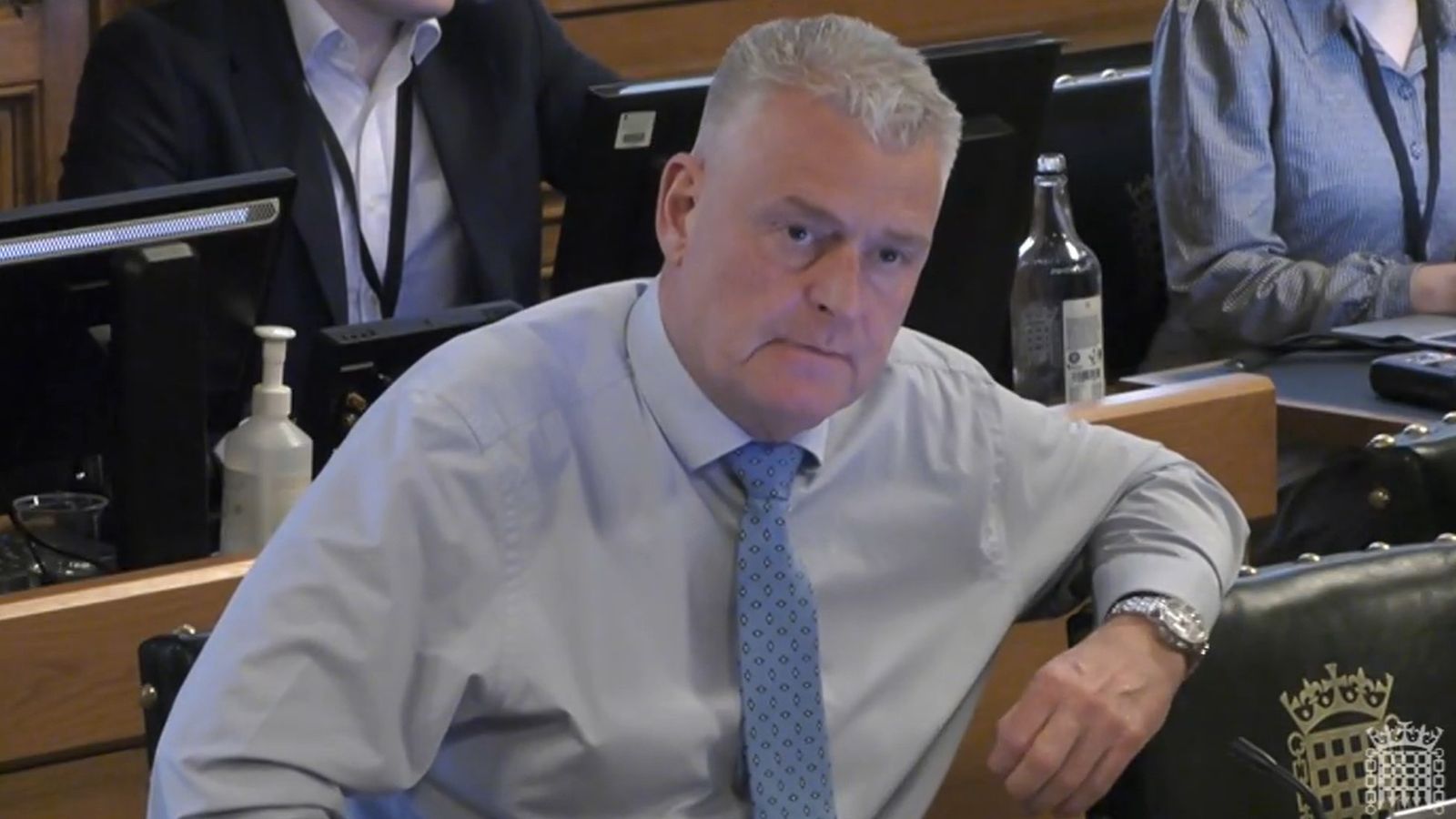Thousands of junior doctors start voting today on strike action

Thousands of junior doctors will start voting on Monday on whether to strike over pay in the latest outbreak of industrial unrest.
About 45,000 British Medical Association (BMA) members in England are being balloted, with a result set for the end of February.
If they reach the 50% ‘yes’ threshold, junior doctors – any doctor below consultant level – will begin a 72-hour “full walkout” in March.
They will not provide emergency NHS care during the strike and trusts will need to arrange emergency cover to ensure patient safety, the BMA said.
The union has urged the government to meet doctors to negotiate a solution to avoid strikes – which would be the second time ever junior doctors have taken action, after 2016, when Chancellor Jeremy Hunt was health secretary.
It said it has not been invited to Monday’s meeting of health union leaders with Health Secretary Steve Barclay.
Junior doctors are calling for better pay after they were excluded from an NHS pay rise this year because their contract is subject to a multi-year pay deal, agreed in 2019 and ending in March, that gives them a 2% rise for 2022/2023.
The BMA said junior doctors in England have seen a real-term pay cut over the past 15 years, which amounts to a 26.1% decline in pay since 2008/9.
And the union says the risk to patients caused by the low pay means it has been left with no option but to ballot junior doctors for strike action.
Advertisement
Read more: Who is striking and when this month?
The BMA has urged Mr Barclay to sit down with doctors to negotiate to avoid industrial action.
Both Rishi Sunak and Mr Barclay have said their doors are open for unions to talk to them.
But the BMA says Mr Barclay is “the first health secretary for over 50 years to continue to ignore all invitations” to meet with doctors.
Read more: Rishi Sunak says public sector pay rises will fuel inflation – economists say they won’t
Dr Vivek Trivedi and Dr Robert Laurenson, co-chairs of the BMA junior doctors committee, said: “When we are faced with such resolute ongoing silence, and there is no agreed settlement on the table, then we are left with no choice but to act.
“Junior doctors are not worth a quarter less than they were 15 years ago nor do they deserve to be valued so little by their own government.
“Pay erosion, exhaustion and despair are forcing junior doctors out of the NHS, pushing waiting lists even higher as patients suffer needlessly.
“The government’s refusal to address 15 years of pay erosion has given junior doctors no choice but to ballot for industrial action.
“If the government won’t fight for our health service, then we will.”
Please use Chrome browser for a more accessible video player
6:44
NHS crisis ‘worse’ than usual this winter
Read more:
Plans to move patients stuck in hospital to care homes
Sunak refuses to reveal if he uses private GP – as NHS waiting times soar
The ballot will open ahead of fresh ambulance worker strikes this week and later in January, and nurses’ strikes next week.
A Department of Health and Social Care spokesman said: “The health and social care secretary has been clear that supporting and retaining the NHS workforce is one of his key priorities, and that includes our hardworking junior doctors.
“Our multi-year pay deal with the British Medical Association is increasing junior doctors’ pay by a cumulative 8.2% by March 2023.
“We have also invested an additional £90m to provide the most experienced junior doctors with higher pay, increased allowances for those working the most frequently at weekends and increased rates of pay for night shifts.
“There are record numbers of staff working in the NHS and we are committed to publishing a comprehensive workforce strategy next year.”
